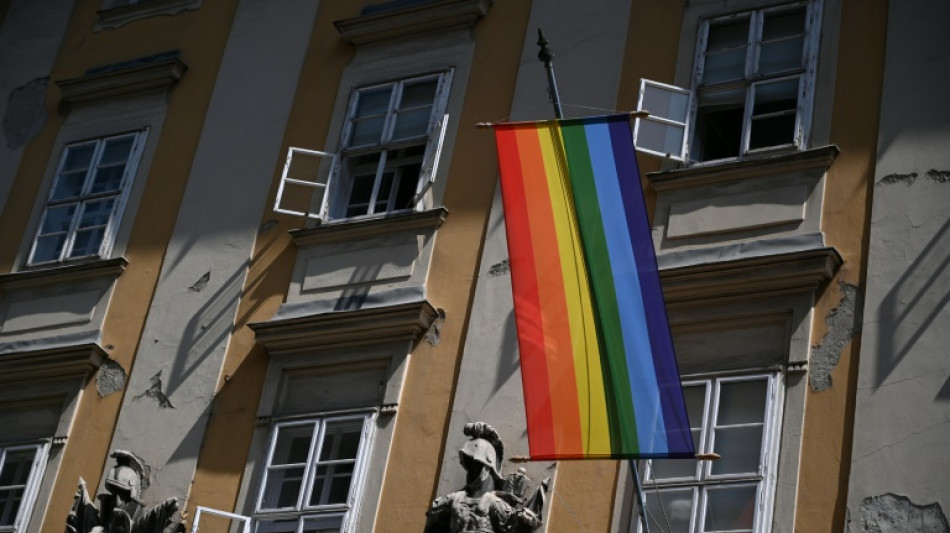
RBGPF
0.1000


Hungarian police on Thursday banned the country's main Pride march from taking place in Budapest on June 28 but the capital's mayor defied them, vowing it would still go ahead.
Since Prime Minister Viktor Orban returned to power in 2010, Hungary has passed a series of laws which have been criticised at home and across the European Union for curtailing the rights of the country's sexual and gender minorities in the name of "child protection".
"The police, acting within their authority over public assemblies, prohibit the holding of the assembly at the aforementioned location and time," the police said on their website.
Police said the ban was necessary under recent legislation that bans the promotion of same-sex relationships to under-18s.
They said any appeal against the decision must be lodged with the central European country's supreme court within three days.
Budapest's liberal Mayor Gergely Karacsony vowed to hold the gathering despite the ban.
He said the police decision had "no value" because the march did not require official authorisation anyway, as it was an event organised by the city council.
"Budapest city hall will organise the Budapest Pride march on June 28 as a city event. Period," he wrote on Facebook.
On Monday he had announced that Budapest city hall would organise the march in an attempt to sidestep the recently adopted law.
In mid-March, the Hungarian parliament passed a bill aimed at banning any gathering that violates an anti-LGBTQ law adopted in 2021.
The 2021 law prohibits the "display or promotion of homosexuality" to under-18s.
- Pro-LGBTQ protests -
In its decision published on Thursday, police said that the march "by its very nature cannot be held without the representation" of people belonging to the LGBTQ community and that under-18s could be present along the route.
"If it cannot be stated with absolute certainty that the display is not taking place in the presence of persons under 18 years of age, the assembly would be in breach of the ban," the police said.
Hungarian lawmakers in April overwhelmingly backed constitutional changes that strengthened the legal foundations for banning the Pride march.
The government said the annual event could be held at an enclosed location like a stadium, out of sight of children.
The conflict over the Pride march has already sparked protests in Hungary.
Thousands of people blocked bridges in the capital, demanding the ban be repealed.
Several members of the European Parliament have said they will attend the parade.
European equalities commissioner Hadja Lahbib is also due to attend the march, as are ministers from several European Union countries, the organisers said.
Attendees risk a fine of up to 500 euros ($570), which the Hungarian authorities say will be channelled into "child protection" projects.
Police may use facial recognition technology to identify them.
C.Mak--ThChM